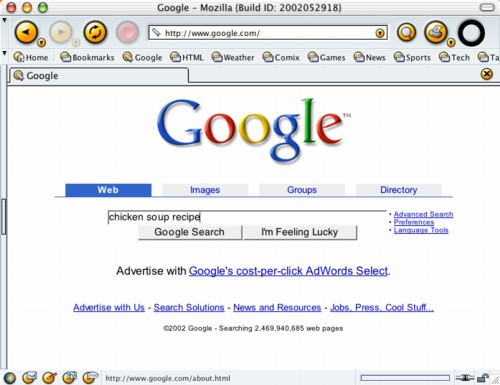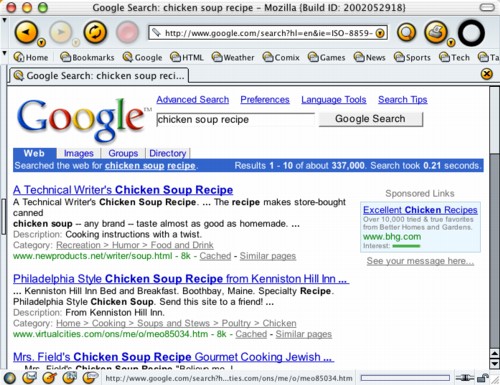 |
The Learning Ladder |
| Module : Computer Basics | ||||
| Part 1 | Part 2 | Part 3 | Part 4 | Part 5 |
Using the Internet (continued)
Searching the Web
With hundreds of millions of web pages out there, finding something you're looking for can be a real challenge. Where do you start?
When you're looking something up in a book, you often use an index, which tells you which page to turn to. There are electronic indexes for the web, which are updated automatically every day, and these indexes can be searched. They're called search engines, and are usually web sites themselves. You just need to know where they are.
If you only memorize one web address, make it this one:
That's the address of Google, one of the best search engines on the web right now. (As time passes, there may be others that are even better, but as of 2009, it's the one we recommend.)
Using it is easy: just go to the web site, type what you're looking for in the text box, and click "Google Search."

You will get back the first page of your search results, and pages that contain what you're looking for are likely to be right there. There may be many different pages that match what you're looking for, depending on how general or specific your search is.

Search Tips
Sometimes, though, your search doesn't work or doesn't give you the results you wanted. This can mean that what you're looking for just isn't out there anywhere. Very often, however, it just means you need to change your search a little and try again. Sometimes it will take a few tries to find what you're looking for.
To go to a search result site, just click its title. You return to the search results page afterwards by clicking your browser's "back" button.
The following tips will help you do good searches:
1. Be as specific as you can when looking for something. If you're looking for "China," for example, you're going to get results that contain the word "China," whether what you mean is dinner plates or the world's largest country. Try "china plates" if that's what you're looking for.
2. Check your spelling. If you misspell words in the search engine, you probably won't get good results.
3. Try similar words. For example, if you look for "baseball strike" and you don't get good results, try "baseball work stoppage" or some other phrase.
4. Read the help for your search engine. Most search engines have a link for help, which will give you more information about how the search engine works, as well as more advanced techniques for searching.
5. Be persistant! Sometimes it takes a few tries to find what you're looking for. Keep at it - using search engines well takes practice, like everything else!
| Click "next" to continue to the next page. | |
